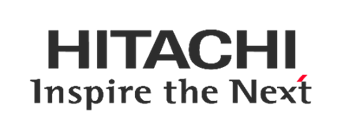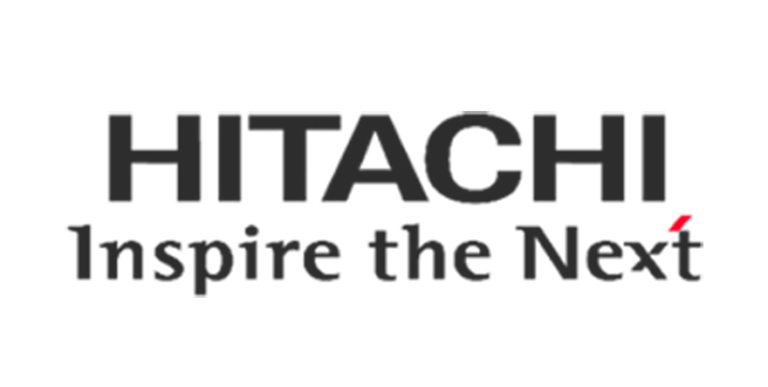- Three-Year, Multi-Billion Dollar Strategic Partnership Focus on creating Transformative, innovative industry solutions For business and society
- Hitachi Group will incorporate Microsoft Cloud, Azure Open AI Service, Dynamics 365, Copilot for Microsoft 365, and GitHub Copilot into its Lumada solutions. Accelerate Lumada business growth and improve productivity for 270,000 employees
- Hitachi is 50,000 “GenAI Professionals” As part of their partnership on advanced AI skills, Microsoft and Hitachi will incorporate Microsoft training into Hitachi’s training.
Redmond, Washington, June 3, 2024/Tokyo, Japan, June 4, 2024 – Hitachi Ltd. (TSE: 6501) and Microsoft announced plans for a multi-billion-dollar collaboration over the next three years to accelerate social innovation through generative AI. The strategic alliance will help Hitachi drive growth in its Lumada business, which it expects to achieve sales of 2.65 trillion yen ($18.9 billion).*1 The company will promote business efficiency and productivity improvements for the Hitachi Group’s approximately 270,000 employees by fiscal 2024.
 Specifically, Hitachi will incorporate Microsoft’s cloud, Azure Open AI Service, Dynamics 365, Copilot for Microsoft 365, and GitHub Copilot into its Lumada solutions to provide innovative solutions for industries such as energy and mobility, contributing to the development of companies and society. In addition, the two companies will promote joint projects to meet urgent business needs, such as strengthening cloud services, which are attracting attention as the use of generative AI expands, strengthening security, and reducing the environmental impact of data centers.
Specifically, Hitachi will incorporate Microsoft’s cloud, Azure Open AI Service, Dynamics 365, Copilot for Microsoft 365, and GitHub Copilot into its Lumada solutions to provide innovative solutions for industries such as energy and mobility, contributing to the development of companies and society. In addition, the two companies will promote joint projects to meet urgent business needs, such as strengthening cloud services, which are attracting attention as the use of generative AI expands, strengthening security, and reducing the environmental impact of data centers.
“Hitachi is promoting AI-driven transformation across the group to improve productivity, and will invest 300 billion yen ($2.1 billion) in it.*1 Hitachi and Microsoft will join GenAI to capture new growth opportunities in fiscal year 2024. Hitachi and Microsoft are already working on various co-creation projects, including the development of next-generation digital solutions in the manufacturing and logistics fields.*2 “Development of a field-extended metaverse that runs on Microsoft Teams” Hitachi President and CEO Keiji Kojima said: “I am pleased that through this new agreement, we will be able to expand our efforts into social infrastructure fields such as energy and mobility, and by applying generative AI, we will work to improve on-site productivity, which will become increasingly important in the future, and further accelerate social innovation. By combining the strengths of our two companies, we will contribute to solving the challenges faced by our customers and society, and contribute to the realization of a more sustainable future.”
“We are ushering in a new era of AI with its promise to deliver transformative business outcomes across every role and industry.” Satya Nadella, Microsoft Chairman and CEO, said: “Our expanded partnership with Hitachi brings together the power of the Microsoft Cloud, including Microsoft Copilot, with Hitachi’s industry expertise to improve productivity for Hitachi’s 270,000 employees and help solve our customers’ biggest challenges, including sustainability.”
Hitachi work conversion:
 Hitachi’s Generative AI Center*3 Hitachi and Microsoft will collaborate to improve operational efficiency and application development within the Hitachi Group by utilizing Copilot for Microsoft 365 and GitHub Copilot. Hitachi will also utilize Azure OpenAI Service to enhance customer service. As part of Hitachi’s group-wide transformation, Hitachi will combine Azure OpenAI Service and GitHub Copilot with Hitachi’s system development expertise to maintain high quality and improve productivity in mission-critical system development. Hitachi’s internal verification confirmed that by combining Hitachi’s detailed system design knowledge with Microsoft Azure OpenAI Service and GitHub Copilot, application source code can be generated correctly 70% to 90% of the time, resulting in high-quality output.*Four
Hitachi’s Generative AI Center*3 Hitachi and Microsoft will collaborate to improve operational efficiency and application development within the Hitachi Group by utilizing Copilot for Microsoft 365 and GitHub Copilot. Hitachi will also utilize Azure OpenAI Service to enhance customer service. As part of Hitachi’s group-wide transformation, Hitachi will combine Azure OpenAI Service and GitHub Copilot with Hitachi’s system development expertise to maintain high quality and improve productivity in mission-critical system development. Hitachi’s internal verification confirmed that by combining Hitachi’s detailed system design knowledge with Microsoft Azure OpenAI Service and GitHub Copilot, application source code can be generated correctly 70% to 90% of the time, resulting in high-quality output.*Four
Hitachi Rail is using GenAI for predictive maintenance to enhance asset monitoring and improve forecast accuracy. This proactive approach helps prevent breakdowns, improve service quality, reduce operational costs, and increase safety. For example, the company has used Microsoft Azure’s cloud-based platform to streamline data visualization and analysis, providing AI-driven data-driven insights to digitally monitor rail infrastructure. These insights can be used to: Network Rail, Enhance predictive maintenance decision-making for overhead lines.
Develop innovative digital solutions
Hitachi is strengthening its Lumada solutions by incorporating generative AI functions. As part of this, the company has begun using Microsoft’s “generative AI” in “JP1 Cloud Services,” a SaaS version of the integrated operations management software “JP1,” which has approximately 20,000 customers. This will shorten the time it takes to respond to problems in IT departments, financial institutions, public institutions, and other organizations, and improve business efficiency. In internal proof-of-concept tests conducted so far, it has been confirmed that the time it takes for an operator to initially respond to an alert can be reduced by approximately two-thirds by using generative AI to respond to alerts and displaying the source of the response, such as a manual.
In addition to this, Hitachi and Microsoft will also support the energy transition by improving access to and enhancing digital solutions for asset performance management, energy trading and risk management, reducing downtime and increasing profitability. Increased computing power and cloud infrastructure are essential to scaling these applications. Hitachi Energy’s enterprise software solution technologies and partnership with Microsoft are key to optimizing energy networks from generation to transmission and distribution, ultimately providing customers with reliable and sustainable energy.
Collaborative projects to promote sustainable growth
Hitachi group companies, including GlobalLogic, Hitachi Digital Services and Hitachi Solutions, offer a wide range of digital engineering, IT and managed services, and cloud application services, and further development efforts through this partnership will be focused on enhancing this wide range of services with the aim of sustainable innovation with Microsoft.
As the impact of CO2 emissions from AI on the global environment increases, Hitachi and Microsoft will work together to achieve zero carbon to reduce the environmental burden, starting with the European datacenter project.
Strengthening digital skills and workforce development
Hitachi will train more than 50,000 GenAI professionals. In addition, this partnership will incorporate training in advanced software development skills using GitHub Copilot and Azure OpenAI Service into the program, and will develop “GenAI professionals” who will support customers’ transformation using AI.
*1 Forecast as of April 26, 2024. Calculated at 140 yen per US dollar.
*2 Hitachi News Release (June 26, 2020) “Hitachi and Microsoft Form Strategic Alliance to Promote Next-Generation Digital Solutions for Manufacturing and Logistics in Southeast Asia, North America and Japan”
https://www.hitachi.com/New/cnews/month/2020/06/200626.html
*3 Hitachi News Release (May 15, 2023) “Hitachi Establishes Generative AI Center to Promote the Use of Generative AI and Accelerate Value Creation and Improve Productivity in Lumada Business”
https://www.hitachi.com/New/cnews/month/2023/05/230515.html
*4 Hitachi News Release (May 21, 2024) “Hitachi Accelerates System Development Transformation with Generative AI” https://www.hitachi.com/New/cnews/month/2024/05/240521.html
About Hitachi
Hitachi is promoting the Social Innovation Business, which realizes a sustainable society by utilizing data and technology. We solve customer and social issues through Lumada solutions that utilize IT, OT (Operational Technology), and products. Hitachi operates in three business sectors: “Digital Systems & Services,” which supports customers’ digital transformation; “Green Energy & Mobility,” which contributes to a decarbonized society through energy and railway systems; and “Connected Industries,” which connects products with digital technology and provides solutions to various industries. We aim to grow through collaboration with customers by making full use of digital, green, and innovation. In fiscal year 2023 (ending March 31, 2024), Hitachi’s sales revenue in the three sectors was 8,564.3 billion yen, the number of consolidated subsidiaries was 573, and the number of employees was approximately 270,000 worldwide. For more information about Hitachi, please visit https://www.hitachi.com.
About Microsoft
Microsoft (Nasdaq “MSFT” @microsoft) develops AI-powered platforms and tools to deliver innovative solutions to meet the evolving needs of our customers. The technology company is driven by a mission to empower every person and organization on the planet to achieve more, and is committed to making AI democratically accessible.
Media Contact
Microsoft Media Relations, WE Communications for Microsoft, (425) 638-7777, [email protected]

